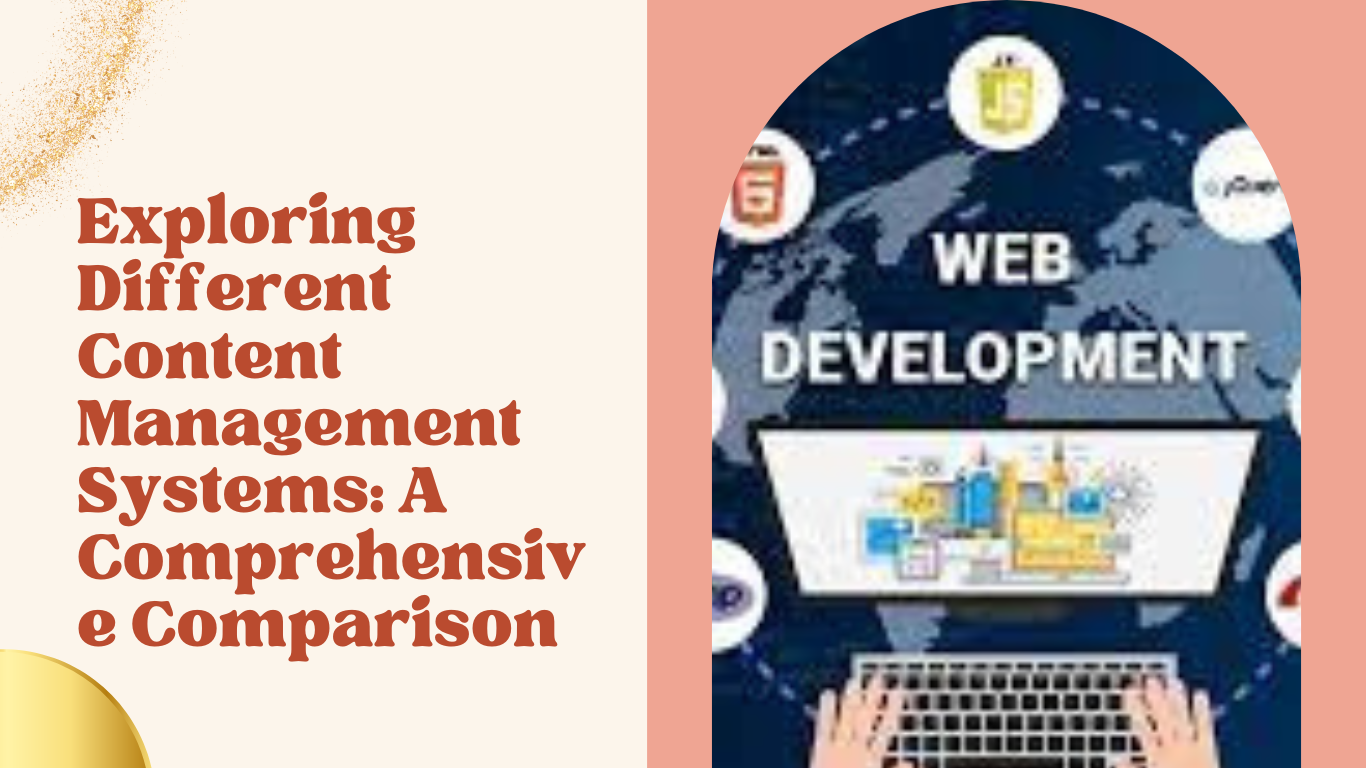
Exploring Different Content Management Systems: A Comprehensive Comparison
Choosing the right Content Management System (CMS) for your website is a critical decision. The CMS you select can significantly impact your website’s performance, functionality, and overall user experience. In this blog post, we’ll dive deep into three popular CMS options: WordPress, Craft, and Magento. We’ll compare their strengths and weaknesses to help you make an informed choice for your specific needs.
WordPress: The Power of Simplicity
Strengths:
- User-Friendly: WordPress is known for its user-friendliness, making it an ideal choice for beginners. You don’t need extensive technical knowledge to get started.
- Extensive Plugin Library: The vast library of plugins allows you to add various functionalities to your site, from SEO optimization to e-commerce.
- Strong SEO Capabilities: WordPress offers excellent SEO plugins, making it a preferred choice for content-driven websites aiming to rank well on search engines.
- Large Community: With millions of users, you’ll find plenty of resources, tutorials, and a supportive community.
Weaknesses:
- Security Concerns: Being open-source, WordPress can be vulnerable to security breaches if not properly maintained and updated.
- Customization Complexity: For highly customized websites, achieving a unique design may require significant coding and development work.
Craft: The Developer’s Delight
Strengths:
- Flexibility: Craft provides a high degree of flexibility, allowing developers to build and design highly customized websites.
- Security: It offers robust security features and updates to protect your website from potential threats.
- User-Friendly Backend: Craft’s backend is user-friendly, making content management accessible to both developers and non-technical users.
- Scalability: Craft is suitable for small sites and large, complex websites alike.
Weaknesses:
- Learning Curve: Craft’s flexibility comes at the cost of a steeper learning curve, requiring some level of technical expertise.
- Cost: While Craft is feature-rich, it’s not free. It comes with a licensing fee that may not suit small budgets.
Magento: E-commerce Excellence
Strengths:
- E-commerce Focus: Magento is designed specifically for e-commerce, offering robust features for online stores.
- Scalability: It’s highly scalable, allowing businesses to grow and expand their e-commerce operations.
- Customization: Magento provides extensive customization options for creating unique shopping experiences.
- SEO-Friendly: Magento is SEO-friendly, making it easier for e-commerce sites to improve their visibility in search results.
Weaknesses:
- Complexity: The complexity of Magento may overwhelm those without a technical background. Setting up and maintaining the platform can be challenging.
Resource-Intensive: Magento can be resource-intensive, requiring substantial server resources for optimal performance.
Making the Right Choice
Choosing the right CMS depends on your specific needs and priorities. If you’re a blogger or content creator, WordPress’s simplicity and SEO capabilities are appealing. Craft suits those who need flexibility and are willing to invest in a developer-friendly platform. Magento is the go-to option for e-commerce businesses seeking a robust and scalable solution.
Ultimately, the choice among WordPress, Craft, or Magento should align with your website’s goals, your level of technical expertise, and your budget. Careful consideration and understanding your unique requirements will lead you to the CMS that best suits your project.
FAQs:
Q1. Which CMS is best for blogging or content sites?
A1. WordPress is an excellent choice for blogging and content-driven websites due to its user-friendliness and robust plugin ecosystem.
Q2. What types of businesses benefit most from Craft CMS?
A2. Craft CMS is best suited for businesses that require a highly customized, developer-centric, and secure website.
Q3. Is Magento only for large e-commerce businesses?
A3. While Magento excels for large e-commerce operations, smaller businesses can use it effectively, provided they have the resources for setup and maintenance.
Q4. How do I decide which CMS to choose for my project?
A4. Consider your website’s specific needs, your level of technical expertise, and your budget. This will help you determine the most suitable CMS.
Q5. Are there other CMS options worth considering?
A5. Yes, there are many other CMS options available. It’s essential to research and compare different platforms to find the one that aligns best with your project requirements.
